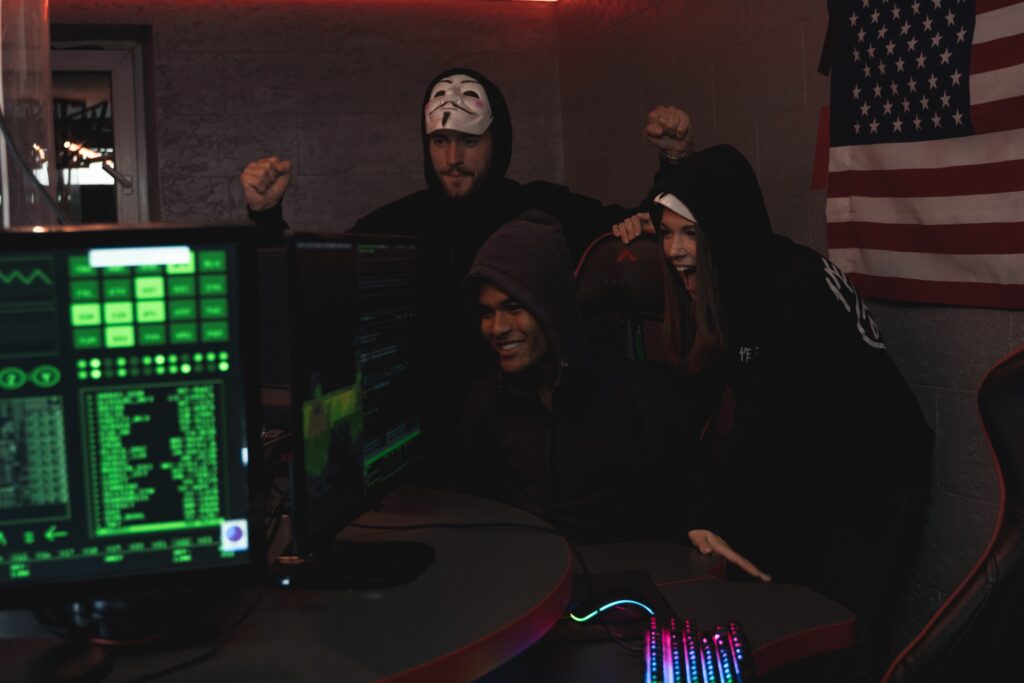In the vast expanse of the digital world, where billions of users communicate and transact daily, there exists a clandestine collective that operates in the shadows, wielding an unparalleled influence. They go by many names but are most commonly known as “Anonymous.” This article aims to shed light on the enigmatic entity, exploring its origins, principles, notable actions, and the profound impact it has had on the realms of online activism and cybersecurity.

The Veil of Anonymity
At its core, Anonymous is a loosely-knit, decentralized network of individuals who unite under the banner of anonymity. Its members, often referred to as “Anons,” wear the digital equivalent of masks, concealing their true identities and affiliations. This secrecy is both a strength and a weakness, allowing for unbridled freedom of expression and action but also inviting skepticism and concern.
Origins and Evolution
The origins of Anonymous can be traced back to the early days of internet forums and imageboards, particularly the notorious 4chan. In its infancy, the group was primarily focused on internet trolling and pranks, characterized by playful antics that, while sometimes controversial, remained within the realm of online amusement.
However, Anonymous underwent a profound transformation. Recognizing its collective power and ability to mobilize for causes it deemed just, the group’s activities evolved beyond mischief to encompass political activism and cyber-activism.
Motives and Notable Actions
Over the years, Anonymous has engaged in a diverse array of actions, often aligned with their core principles of freedom of speech, privacy, and social justice. Some of their most notable actions include:
1. Operation Chanology (2008):
Anonymous took on the Church of Scientology, protesting against alleged censorship and harassment of internet users by the organization. Their campaign included a barrage of DDoS attacks and the distribution of internal Church documents.
2. Support for WikiLeaks (2010):
During the height of controversy surrounding Julian Assange and WikiLeaks, Anonymous rallied to support the organization. They targeted companies and institutions that had severed ties with WikiLeaks, launching DDoS attacks against PayPal, MasterCard, Visa, and others.
3. Arab Spring (2011):
In response to the Arab Spring uprisings, Anonymous provided crucial support to pro-democracy activists in the Middle East. They offered tools and resources for secure communication and aided in bypassing internet censorship.
4. Occupy Movement (2011):
Anonymous threw its weight behind the Occupy Wall Street movement, highlighting economic inequality and corporate malfeasance.
5. OpISIS (2015):
To combat the online presence of ISIS, Anonymous launched Operation ISIS, targeting social media accounts and websites associated with the terrorist group.
6. Racial Justice Protests (2020):
Amidst the global protests sparked by the death of George Floyd, Anonymous resurfaced with a video condemning police brutality and corruption, pledging support for the movement. These actions, among numerous others, have solidified Anonymous’s reputation as a digital vigilante force, fearlessly confronting powerful entities and advocating for various causes, often at great personal risk.
Controversy and Criticism
Anonymous’s modus operandi has not been without controversy and criticism. Detractors argue that the decentralized structure of the group makes it susceptible to manipulation, as individuals can exploit the Anonymous label for personal gain or malicious purposes. Additionally, the use of hacking and cyber-attacks to achieve their objectives has raised ethical concerns. While Anonymous contends that its actions are intended to expose wrongdoing and promote transparency, critics assert that hacking can have unintended consequences, infringing upon the rights of innocent parties.
The Power of Anonymity
One of the most intriguing aspects of Anonymous is the power of anonymity itself. By concealing their identities, Anons are empowered to challenge institutions, corporations, and governments without fear of personal reprisal. The iconic Guy Fawkes mask, often associated with Anonymous, symbolizes this digital cloak of invincibility.
The Ongoing Legacy
As the digital landscape continues to evolve, Anonymous remains a persistent force, occasionally surfacing to address pressing issues of our time. Whether one views them as heroes, vigilantes, or something in between, Anonymous undeniably occupies a unique and influential space in the digital age, a space where silent shadows converge to shape the narrative and advocate for change. In a world where the battle for privacy, free speech, and social justice is ever more critical, the Anonymous Network serves as a stark reminder of the power of individuals united by a common cause and the enduring legacy of those who operate from the shadows.
Anonymous are the shit. Heroes.